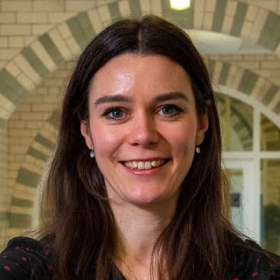You will have come across the term PPIE, or Patient and Public Involvement and Engagement. It is a given that we involve people affected by a condition, so for us, dementia, in our research design and development, conduct, and dissemination. And that is not restricted to dementia of course. PPIE needs to be embedded in any health and social care research, because how else do we know that we as researchers really address the issues that are most important, and urgent, to those with lived experience?
Where to start when we set out to involve people with lived experiences? Before we delve into that, I’m throwing in another group of people who really should be part of the PPIE process – professional and voluntary experts, so health and social care professionals and Third Sector representatives. Care home and home care staff will have valuable insights from working on the frontline that people with dementia and unpaid carers may not have, and everyone’s insights can provide a much more complete picture of experiences.
We refer to PPIE, but when we develop, design, and conduct our research, we engage in PPI, or at least should do! When we disseminate our work, this can be both public involvement (by involving public advisers/ lived/professional experts in disseminating the research they have been involved in) or public engagement (by engaging with the wider public or lived and professional experts who have not been involved in the research). Both are important, because what’s the point of having a paper published, or two or three, and the findings reach no one, have no impact on the lives of people affected by dementia or working in the field, and just sit there? No point at all, so we all need to be doing PPIE.
Having involved people with dementia, carers, care providers, and Third Sector in my work for much over a decade now, below are some tips I hope will be helpful in navigating your way through PPIE:
- Public advisers and stakeholders as team members. You should involve people with lived experiences and stakeholders (health/social care professionals/ Third Sector reps) in your development from the start, and they need to be co-investigators on the grant application. The NIHR needs to see good PPIE to fund research (besides so many other aspects of producing a fundable grant).
- Recruit lived experts via different sources. It is good to work with lived experts from diverse backgrounds – gender, ethnic, regional, cultural, socio-economic, and so on. This brings a much more diverse perspective to your work. Try and recruit people via different avenues, such as different support groups or NHS services.
- Set up a Buddy system for public advisers. Match up public advisers who are just starting out with those who have supported a few projects already. It can be daunting joining a group of academics and care professionals for the first time, so being linked up with someone who knows ‘the ropes’ and encourages the new person to speak up and share their experiences is invaluable.
- Make sure you adequately cost in for your PPIE activities. Public advisers get paid according to NIHR INVOLVE guidelines for each of their activities. Similarly, if you apply for larger funding, you need to cost in care professionals and Third Sector representatives for their time.
- Everyone’s opinion matters, and needs to be pulled together to inform the best way forward with the research. It is your job as team/project lead to ensure everyone feels comfortable to share their opinion and jointly shape and advance the research, and to then pull this together into ways forward that ensure everyone contributed. If a lived expert for example shares that an intervention should be conducted in a certain way to enable more carers to engage with it, then that is just as important as the input from a statistician suggesting certain statistical approaches for analysing the data. Everyone brings different, but complementary, experiences to a group.
- Public engagement should be interactive as much as possible. A research paper is often just for us academics. To make sure it reaches beyond the academic ivory tower, reaches Third Sector, decision makers, those with dementia, carers, care professionals, and the general public, we need to create diverse formats of information. That might take the form of lay summaries and talks at events, creating a video, a blog, a podcast, going to specific Public Engagement events such as Pint of Science, or creating an interactive app or board game.
PPIE shouldn’t be yet another task to do, but something to look forward to in our research. I hope these key tips make starting out in and advancing your PPIE activities a little bit easier. It would be great to hear about your PPIE experiences in the comments section and add your own tips or ask questions!

Dr Clarissa Giebel
Author
Dr Clarissa Giebel [1] is a Senior Research Fellow at the University of Liverpool and NIHR ARC North West Coast. Clarissa has been working in dementia care research for over 10 years focusing her research on helping people with dementia to live at home independently and well for longer, addressing inequalities that people with dementia and carers can face. Outside of her day work, Clarissa has also organised a local dementia network – the Liverpool Dementia & Ageing Research Forum, and has recently started her own podcast called the Ageing Scientist [2].